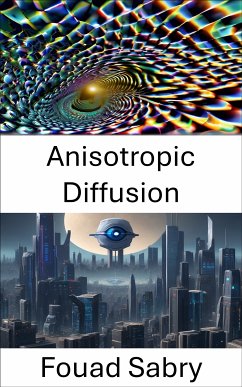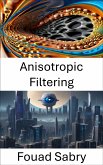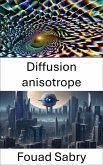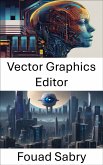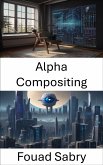What is Anisotropic Diffusion
In image processing and computer vision, anisotropic diffusion, also called Perona-Malik diffusion, is a technique aiming at reducing image noise without removing significant parts of the image content, typically edges, lines or other details that are important for the interpretation of the image. Anisotropic diffusion resembles the process that creates a scale space, where an image generates a parameterized family of successively more and more blurred images based on a diffusion process. Each of the resulting images in this family are given as a convolution between the image and a 2D isotropic Gaussian filter, where the width of the filter increases with the parameter. This diffusion process is a linear and space-invariant transformation of the original image. Anisotropic diffusion is a generalization of this diffusion process: it produces a family of parameterized images, but each resulting image is a combination between the original image and a filter that depends on the local content of the original image. As a consequence, anisotropic diffusion is a non-linear and space-variant transformation of the original image.
How you will benefit
(I) Insights, and validations about the following topics:
Chapter 1: Anisotropic diffusion
Chapter 2: Fick's laws of diffusion
Chapter 3: Diffusion equation
Chapter 4: Heat equation
Chapter 5: Navier-Stokes equations
Chapter 6: Total variation
Chapter 7: Divergence
Chapter 8: Laplace operator
Chapter 9: Curl (mathematics)
Chapter 10: Divergence theorem
(II) Answering the public top questions about anisotropic diffusion.
(III) Real world examples for the usage of anisotropic diffusion in many fields.
Who this book is for
Professionals, undergraduate and graduate students, enthusiasts, hobbyists, and those who want to go beyond basic knowledge or information for any kind of Anisotropic Diffusion.
In image processing and computer vision, anisotropic diffusion, also called Perona-Malik diffusion, is a technique aiming at reducing image noise without removing significant parts of the image content, typically edges, lines or other details that are important for the interpretation of the image. Anisotropic diffusion resembles the process that creates a scale space, where an image generates a parameterized family of successively more and more blurred images based on a diffusion process. Each of the resulting images in this family are given as a convolution between the image and a 2D isotropic Gaussian filter, where the width of the filter increases with the parameter. This diffusion process is a linear and space-invariant transformation of the original image. Anisotropic diffusion is a generalization of this diffusion process: it produces a family of parameterized images, but each resulting image is a combination between the original image and a filter that depends on the local content of the original image. As a consequence, anisotropic diffusion is a non-linear and space-variant transformation of the original image.
How you will benefit
(I) Insights, and validations about the following topics:
Chapter 1: Anisotropic diffusion
Chapter 2: Fick's laws of diffusion
Chapter 3: Diffusion equation
Chapter 4: Heat equation
Chapter 5: Navier-Stokes equations
Chapter 6: Total variation
Chapter 7: Divergence
Chapter 8: Laplace operator
Chapter 9: Curl (mathematics)
Chapter 10: Divergence theorem
(II) Answering the public top questions about anisotropic diffusion.
(III) Real world examples for the usage of anisotropic diffusion in many fields.
Who this book is for
Professionals, undergraduate and graduate students, enthusiasts, hobbyists, and those who want to go beyond basic knowledge or information for any kind of Anisotropic Diffusion.
Dieser Download kann aus rechtlichen Gründen nur mit Rechnungsadresse in A, B, BG, CY, CZ, D, DK, EW, E, FIN, F, GR, H, IRL, I, LT, L, LR, M, NL, PL, P, R, S, SLO, SK ausgeliefert werden.

